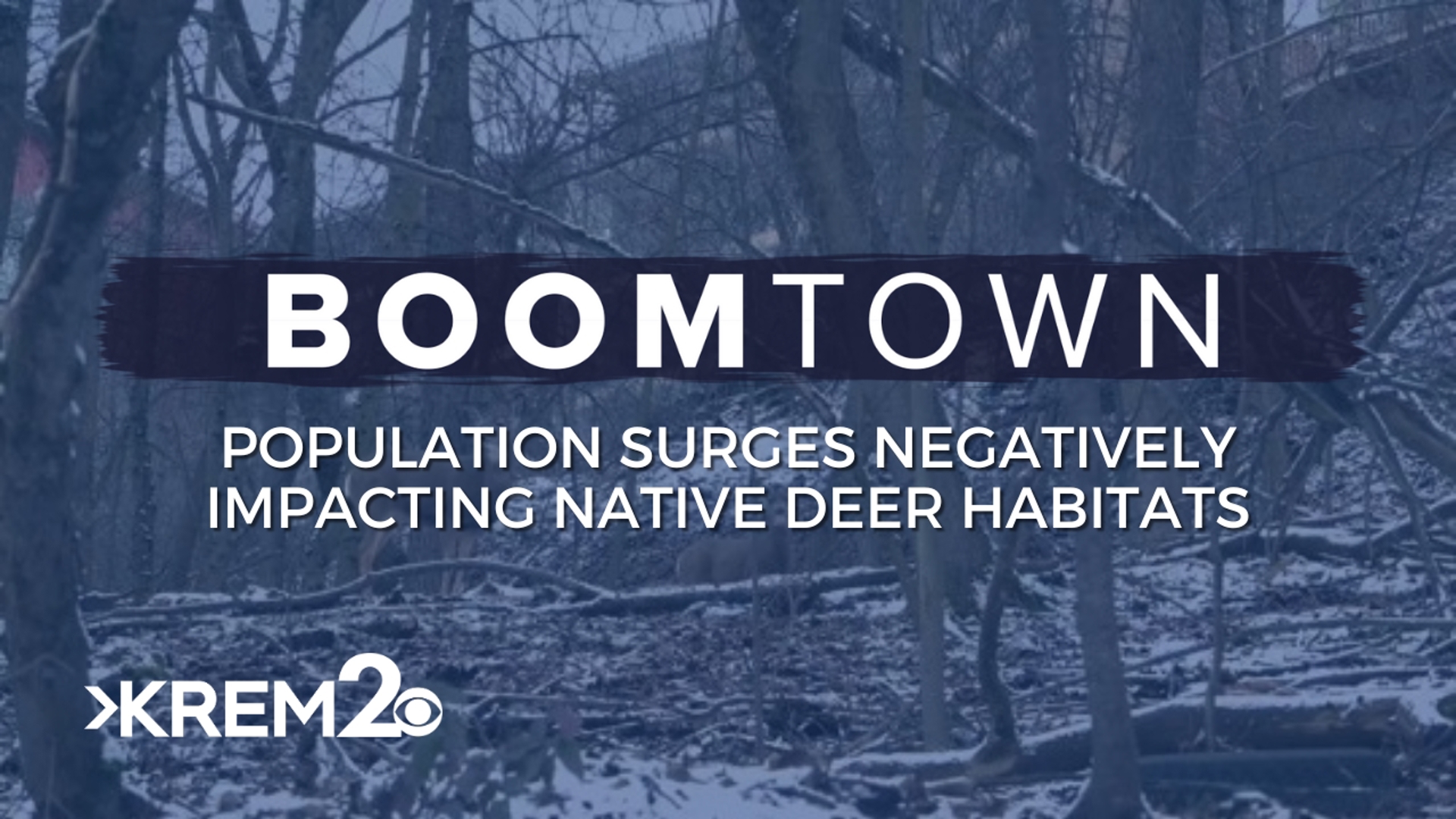SPOKANE, Wash. — Peaceful Valley is home to the Spokane River, a community of people, and a family of deer who frequent the neighborhood's natural areas. While a deer sighting under the Maple Street bridge adds to the namesake of Peaceful Valley, it's also a sign of a larger problem. Humans are encroaching on native deer's natural habitat.
Samantha Bundick, an Ungulate (hooved mammal) Specialist with the Washington State Department of Fish and Wildlife, says deer have had to adapt to their rapidly changing environment. While they are a resilient species, Bundick says their population is decreasing.
Several factors are contributing to the decrease in population, many of which are human caused. An increase in highway infrastructure has played a big role in the destruction of natural habitat.
"Human collisions are one of the biggest mortality factors for ungulates," Bundick said.
In addition to collisions, the highway system also fragments deer habitat. Larger highways are near impossible for deer to cross, leaving them segregated from other parts of their species. That can pose problems for dispersing and migrating, which are critical behaviors for a species to maintain genetic variation.
"Having a lot of genetic variation in a population is very important for long term success," Bundick said. "There's research showing that subspecies are being created, because the genetics aren't being mixed anymore."
In addition, when deer are forced into closer proximity to each other, they can more easily spread disease. Chronic Wasting Disease is a 100% fatal disease wildlife experts are tracking.
"It can have pretty detrimental effects on your population sizes if it gets a strong enough hold," Hunter Westacott, WDFW Chronic Wasting Disease Surveillance Coordinator, said.
There have been no documented cases in Washington State, but Idaho and British Columbia have found deer that tested positive. While the disease itself is natural, humans are contributing to its spread. Westacott said people should avoid leaving feeding piles out, because the congregation of animals can spread Chronic Wasting Disease.
WDFW also suggests planting native plants in your yard, if you have one, to promote a more natural environment for the deer who have learned to co-exist in the region's neighborhoods.
"We're taking away from their habitat. And the best thing you can do is give it back to them," Bundick said.
WATCH MORE BOOMTOWN: WSDOT to begin working on Spokane River crossing section of North Spokane Corridor

